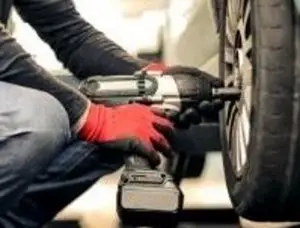There are a lot of different types of mechanic gloves out there. But which ones are the best for you? Let’s take a look at the different types of gloves and see which ones will suit your needs the best.
Different types of mechanic gloves
There are many types of mechanic gloves available on the market, each designed for a specific purpose. While some gloves are meant for general maintenance and repairs, others are designed for more specific tasks.
Here is a rundown of some of the most popular types of mechanic gloves:
- General Maintenance gloves: These gloves are designed for everyday tasks such as oil changes, tire rotations, and other basic repairs. They usually have a snug fit and offer moderate dexterity.
- Oil-resistant gloves: These gloves are designed to protect your hands from oil and other chemicals. They often have a waterproof coating or lining to keep your hands safe and dry.
- Heavy-duty gloves: These gloves are designed for more demanding tasks such as welding or working with power tools. They usually have a tougher construction and offer less dexterity.
- Heat-resistant gloves: These gloves are designed to protect your hands from high temperatures. They often have a special lining or coating that helps to reflect heat away from your skin.
Here is a further breakdown of the most common types of mechanic gloves:
- Disposable gloves: These gloves are made from latex, vinyl or nitrile, and are ideal for protecting your hands from harmful chemicals and other Fine Particulates. They are available in various sizes, and should be replaced regularly.
- Reusable gloves: These gloves are made from leather, cotton, Kevlar, nitrile, string knit, or polyester and can be used multiple times. They offer more protection than disposable gloves, but need to be properly cared for to maintain their effectiveness. They are often lined with cotton for comfort and durability and have a textured surface that helps grip tools and other objects.
- Welding gloves: These heavy-duty gloves are made from leather or Kevlar, and are designed to protect your hands from heat and sparks when welding. They often have reinforced palms and fingers, and should be used with caution as they can cause burns if not used correctly.
- Anti-vibration gloves: These gloves are made from rubber or gel, and are designed to reduce the effects of vibration on your hands. They can be worn all day without causing discomfort, but need to be removed before using any power tools.
- Leather work gloves: These gloves are made from various types of leather and are usually worn for protection from heat, cold, or abrasions.
The benefits of wearing mechanic gloves
Mechanics work with their hands a lot and are constantly exposed to grease, grime, and other harmful chemicals. This is why wearing gloves while working on cars, trucks, or other machinery is extremely important. First, it protects your hands from getting dirty and oily. Second, it protects your hands from sharp edges and other potential hazards. And third, it keeps your hands warm in cold weather.
How to choose the right mechanic gloves
Wearing the right gloves can protect your hands from these materials and also provide a better grip on tools and parts. There are many different types of mechanic gloves available, so it is important to choose the right ones for your needs.
When choosing mechanic gloves, it is important to consider the material, fit, and style that will best suit your needs. The material should be able to withstand the wear and tear of being a mechanic. It should also be able to protect your hands from the various chemicals and fluids that you will come in contact with while working on cars.
When choosing mechanic gloves, you should also consider the size. The size of the glove should be based on the size of your hand. If you have large hands, you will need to choose a larger size glove. If you have small hands, you will need to choose a smaller size glove. Many hardware stores and glove manufacturers offer sizing charts to help you find the right fit.
You should also consider the length of the glove. Mechanic gloves come in both short and long lengths. The length of the glove will depend on how much coverage you need for your hands.
Another factor to consider when choosing mechanic gloves is the style of the glove. There are several different styles of mechanic gloves on the market today. The most popular style is the fingerless glove. This type of glove gives you the dexterity that you need to work on cars, but it also allows your fingers to breathe while you are working.
No matter what type of glove you choose, be sure to select a size that fits snugly but not too tightly. You don’t want your gloves to be so loose that they fall off easily, but you also don’t want them to be so tight that they restrict your movement or cut off circulation to your hands. There are also those that are made specifically for women, and there are those that can be used by both genders.
How to care for your mechanic gloves
Once you’ve found the perfect pair of gloves, it’s important to take care of them so they’ll last. Be sure to read the manufacturer’s instructions carefully. If your gloves get wet, let them air dry; do not put them in the dryer or expose them to direct heat, as this can damage the material. When not in use, store your gloves in a cool, dry place out of direct sunlight.
In Closing
There are different types and sizes of mechanics gloves available on the market to choose from, each with their unique pros and cons. However, which one you choose to wear will ultimately it come down to what tasks you will be doing and personal preference.
NEXT UP: What Jobs Require Mechanic Gloves?

